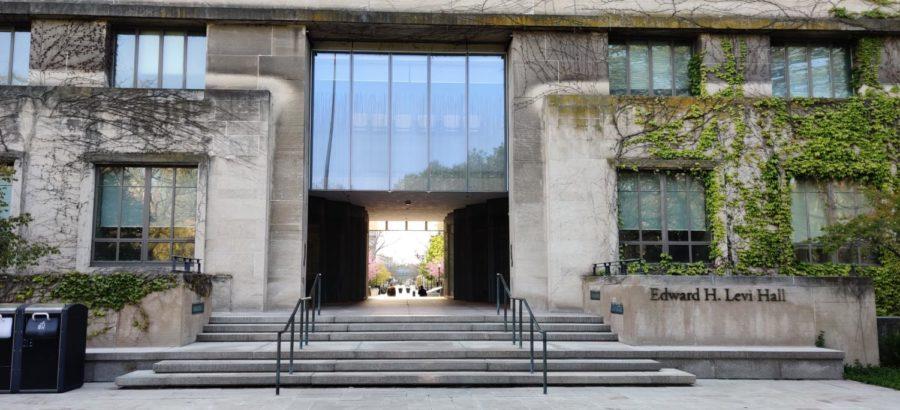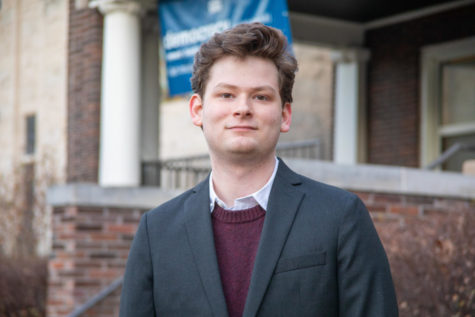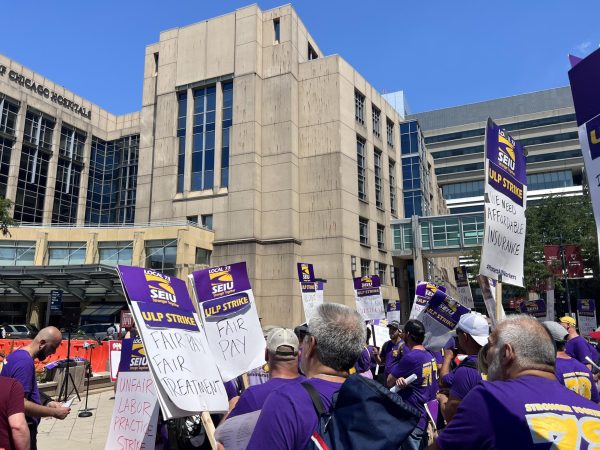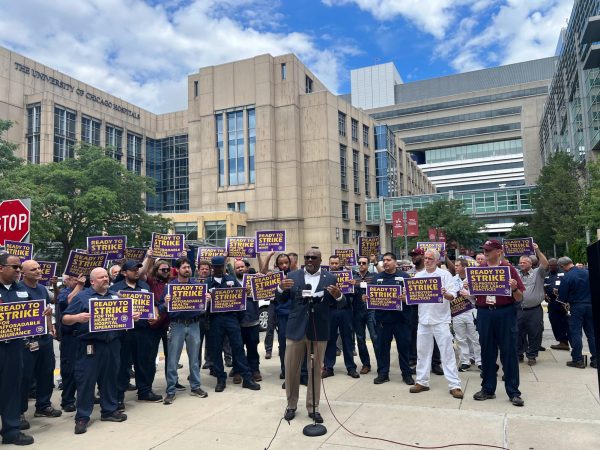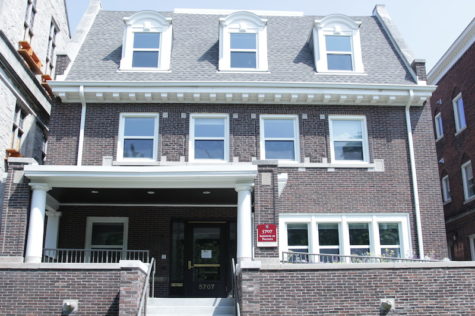Faculty Forward Looks to Build on a History of Success
Faculty Forward, the non-tenure track faculty union, helped establish fairer wages and clearer promotion policies through collective bargaining agreements with the University.
March 31, 2023
Since 2015, non-tenure-track faculty at UChicago have been unionized under UChicago Faculty Forward. The union brokered its first collective bargaining agreement (CBA) with the University in 2018 and has since helped establish fairer wages and clearer promotion policies. The Maroon spoke with members about the conditions that led to the formation of their union and the changes that have been won in the last eight years.
UChicago Faculty Forward is a part of the nationwide Faculty Forward initiative led by the Service Employees International Union (SEIU) seeking to improve the employment conditions of all university instructors without tenure protections.
Non-tenure-track faculty at the University voted to unionize in December 2015 and affiliated with SEIU as the first branch of the Faculty Forward initiative in Chicago. UChicago Faculty Forward negotiated its first CBA with the University in April 2018.
Jason Grunebaum, an instructional professor in the Department of South Asian Languages and Civilizations, represents full-time non-tenure-track appointees on UChicago Faculty Forward’s executive committee. He spoke with The Maroon about the conditions that motivated unionization—namely, poor compensation, the lack of quarter-to-quarter job security, the lack of standardized performance reviews, and the increasing teaching obligations from the University.
“Before we were unionized, the University had sole discretion over our conditions of employment, which basically means they could do whatever they wanted, whenever they wanted to,” he said.
According to Grunebaum, the greatest source of discontent among non-tenure-track faculty at the University was the question of salaries. “We organized because our salaries were terrible,” he said. “We had colleagues who were working here for 10 to 15 years, and their salaries—their full-time salaries—were still stuck in the [40,000s].”
Darcy Lear, an instructional professor in the Department of Romance Languages and Literatures who represents part-time appointees on the executive committee, echoed Grunebaum’s sentiment. In particular, she commented that the compensation of part-time instructors was too low. “If you were part-time, you got a per-course pay, so like $5,000 per course, year after year after year, maxing out at four courses.”
In addition to compensation, Lear commented that non-tenure-track appointees are often faced with poor benefits and job security. She said that before unionization, she and her colleagues did not have access to University healthcare, were not granted paid parental leave, and were often left waiting until the start of each quarter to figure out if they would be employed for the next term.
Grunebaum said these conditions made unionization desirable to many. “Given that environment, it wasn’t a very hard sell.”
“Back in 2015, that’s when we started our unionization drive, and that’s when we started our campaign,” Grunebaum said. The December 2015 unionization vote passed with over 81 percent support, according to the SEIU.
Dmitry Kondrashov, an instructional professor in the Biological Sciences Division who also serves on UChicago Faculty Forward’s executive committee, told The Maroon, “At the time, we were part of sort of a broader nationwide movement to give representation and voice to faculty mostly without tenure protection.” He added, “Nationwide, we’re facing similar problems.”
Kondrashov described reaching a CBA with the University as a long process that involved multiple rounds of discussion and canvassing of UChicago Faculty Forward’s membership for bargaining priorities. “It was April 2018 when we actually got it together. We started bargaining in January 2016, and it took us over two years,” he said.
The first CBA expired after three years, and UChicago Faculty Forward is currently in its second year of its second CBA. The current CBA will expire in April 2024.
The benefits brokered in the first CBA were numerous and far-reaching, according to interviewees.
One notable improvement was the increase in minimum salaries for non-tenure-track appointees, as well as the standardization of salary structure. Previously, salary structure had not been standardized, with significant variation between departments. “Once we got together as a collective and said, ‘Everybody with this job title is going to make this much money,’ [pay] went up by like 50 percent for most people in that contract,” Lear said.
Kondrashov added that the standardization of salary structure also came with a standardization of promotional progression structure, which had previously been poorly defined.
Another improvement was the standardization of performance reviews, which were previously unpredictable and applied arbitrarily, according to Grunebaum. “Now we have transparent guidelines for performance reviews.”
Grunebaum said the first CBA significantly improved job security by requiring that letters of appointment be sent to faculty members well before the start of their terms.
“Quite often before the CBA, we wouldn’t receive our appointment letters until after the start of our appointment dates,” Grunebaum said. “Sometimes you’re not absolutely certain that you have employment for the next year until you’re holding that piece of paper, so now the CBA stipulates that this actually has to come well in advance of the start of your appointment.”
Other benefits conferred by the first CBA included access to University healthcare for all non-tenure-track appointees and paid parental leave for full-time appointees.
“We achieved bringing up the floor of our lowest paid members, we achieved a part-time benefits-eligible salaried position, we achieved parity in parental leave, and in our second contract, we built on that and achieved the same parental leave for our part-timers as well,” Grunebaum said.
Kondrashov said that in addition to the numerous benefits to non-tenure-track faculty at the University, unionization also benefited the University in some ways.
“The funny thing about this process is that the administration actually liked some of that process because it helped the central part of the administration, the provost’s office, standardize things and sort of get control of things, which wasn’t necessarily always to our advantage, but having a contract in writing really regularized a lot of the process. They liked that; I think that’s one of the things that helped us get the whole thing done.”
Kondrashov also spoke about the recent graduate student unionization movement. “I would say that we’re all absolutely in solidarity with and supportive of GSU [Graduate Students United],” he said. “We see [ourselves] as part of a very similar struggle and similar position.”
“And what they do is work,” Lear said. “For some reason that’s been questioned, but we have no questions about that.”
With the graduate student unionization vote passing with over 92 percent approval, the bargaining process between GSU and the University is likely to begin in the following months.
Grunebaum offered a final note of support to graduate student unionization, saying, “It will strengthen the graduate student experience and enrich the University. There’s no doubt about it.”


